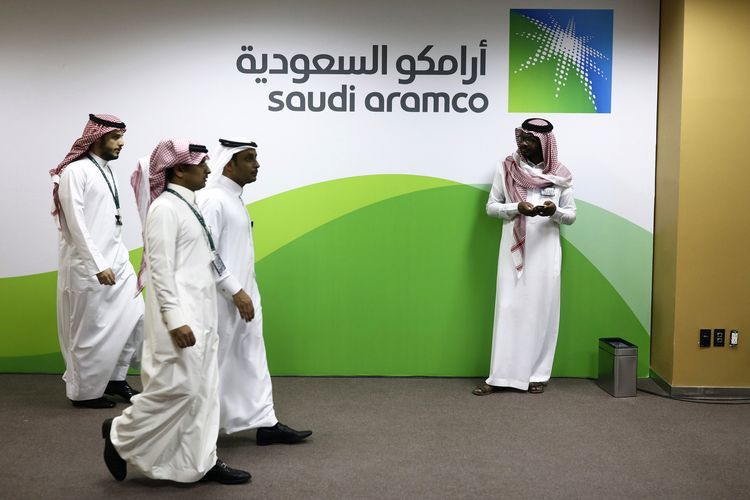
When the state-owned oil company of the United Arab Emirates decided to sell a stake in its fuel-retailing unit, it had a lofty valuation target.
According to people familiar with the matter, the Abu Dhabi National Oil Co., or Adnoc, was hoping the initial public offering would value the business at as much as $14 billion. Nearly half a year later, Adnoc is settling for far less: $8.5 billion. The company hasn’t commented publicly on the valuation.
That drop will resonate through the Middle East, where governments are counting on their oil giants to raise cash. The Adnoc fuel-distribution IPO is the first of several expected in the region — most notably that of Saudi state-owned oil giant Aramco — a trend that will partly reverse the nationalization of the Middle East’s energy industry that started in 1950.
Mohammed bin Salman, the young Saudi crown prince who runs the country day-to-day, has said Aramco is worth at least $2 trillion and potentially more. If achieved, the sale of 5 percent of the company would raise $100 billion, dwarfing the $25 billion raised by Chinese internet retailer Alibaba Group Holding Ltd. in 2014.
The Adnoc deal will provide the Saudis with pause for thought.
After privately talking about a valuation as high as $14 billion, Adnoc initially set a guidance for its fuel-distribution IPO of as much as 2.95 dirhams per share, implying a top valuation just above $10 billion.
Weeks later, it lowered the maximum price of its guidance range to 2.65 dirhams — valuing the whole company at $9 billion — and on Friday it finally settled for 2.5 dirhams, or $8.5 billion, according to terms seen by Bloomberg News. The company, which mooted selling as much as 20 percent of the unit, ended up selling just 10 percent.
To be sure, the Adnoc IPO is a very different animal from the Saudi Aramco IPO: the unit that Abu Dhabi is selling operates filling stations in the United Arab Emirates, at the far end of the supply chain from the prized oil fields that generate the region’s extraordinary wealth. Still, it shows that governments and investors hold different views about the value of the assets and highlights that rising political risk in the region could deter some investors.
While there’s a lot of guesswork involved in sizing up a company like Aramco that’s never divulged financial statements, private sector analysts have put much lower valuations for Aramco, with Sanford C. Bernstein & Co. saying it could be $1 trillion to $1.5 trillion. Tudor Pickering Holt & Co LLC, a Houston boutique bank focusing on energy, put the valuation at $1.1 trillion.
